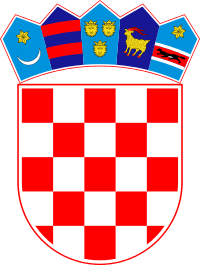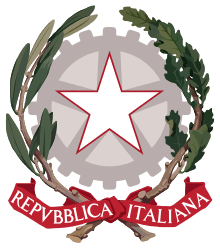Croatia–Italy relations
 |
|
Croatia |
Italy |
|---|---|
Croatia–Italy relations refer to the bilateral relationship between Croatia and Italy. Diplomatic relations among two countries were established on January 17, 1992 following Croatia's independence from SFR Yugoslavia.
Croatia has an embassy in Rome, general consulates in Milan and Trieste, and consulates in Bari, Florence, Naples, and Padua.[1] Italy has an embassy in Zagreb, general consulate in Rijeka, Vice Consulate in Buje, Pula and Split, as well as Italian Cultural Institute and Foreign Trade Institute in Zagreb.[2]
Both countries are full members of NATO and the European Union.
Population
There are around 19,500 people of Italian descent living in Croatia. There are also around 6,000 Molise Croats in Italy.
In addition, there are around 21,000 registered immigrant Croatian workers in Italy.[3]
Historically, the Dalmatian Italians constituted a significant population of Dalmatia.
Economy
Italy is the most important Croatian foreign trade partner in which Croatia exports about 14% of its total annual merchandise.[4]
Esuli/Optanti
Although were allies at the World War II, Croatia and Italy continue to debate bilateral property and ethnic minority rights issues stemming from border changes after World War II.
There are a number of people who are Italian citizens but who had previously been living in what is now Croatian territory before they opted to Italy, shortly after World War II - known as the esuli (exiles) or optanti (volunteers). A later contract between SFR Yugoslavia and Italy prevented the restitution of their property since a deal was made that treated this seized property as war reparations.
Nevertheless, there are now at least two groups of people dissatisfied with the situation:
- people who were exiled during a period not covered by the aforementioned agreement (post 1956?) who demand that their property be returned
- the people who were exiled and/or their children who wish to buy real-estate in the same areas (if not the same buildings or land)
Neither of these was allowed to pursue in Croatia legally. However, after adoption of the new laws in Croatia (that were required for the accession of Croatia to the EU), it is now allowed to citizens of all member states of the EU to buy real-estate in Croatia.
Fishing
A problem arose with the fishing zones in the Adriatic sea. Italy denied the right of Croatia to proclaim its Ecological and Fisheries Protection Zone before January 1, 2008, because that would have broken an earlier agreement with Italy and Slovenia.[5] At the same time Italy, without breaking the agreement, has proclaimed its own zone.
See also
References
- ↑ http://www.mvep.hr/hr/predstavnistva/dmkurh-u-svijetu/italija-rim,42.html#p
- ↑ http://www.mvep.hr/hr/predstavnistva/veleposlanstva-stranih-drzava-u-rh/italija-zagreb,45.html#p
- ↑ "Archived copy". Archived from the original on June 27, 2013. Retrieved August 7, 2014.
- ↑ http://www.index.hr/vijesti/clanak/najvazniji-partner-porast-industrijskih-narudzbi-u-italiji-otvara-mogucnost-rasta-hrvatskog-izvoza/832374.aspx
- ↑ "Croatia's Mesic suggests modification of proposed fishing zone likely". SETimes.com. 2008-01-01. Retrieved 2010-06-11.
External links
- Croatian Ministry of Foreign Affairs and European Integration: list of bilateral treaties with Italy
- Croatian embassy in Rome (in Croatian and Italian only)
- Italian embassy in Zagreb

